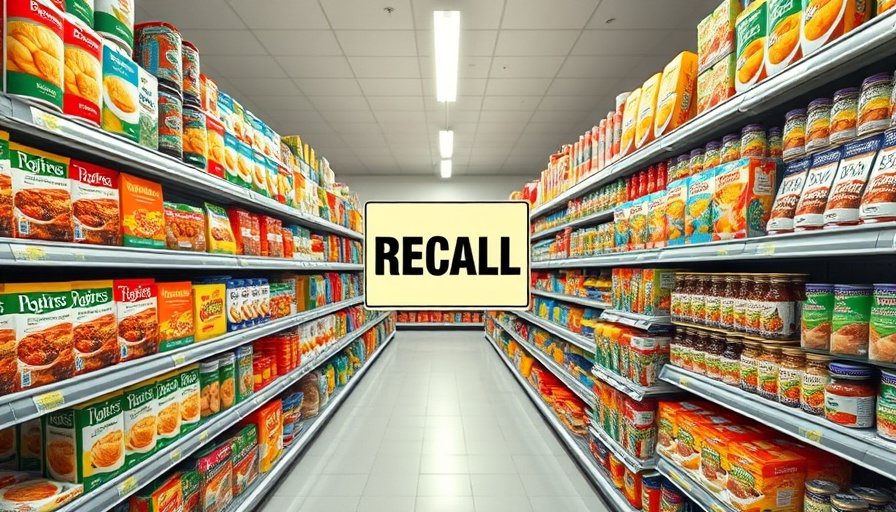
Recent Food Recalls: What You Need to Know
In a world where food safety is paramount, recalls are a critical aspect of ensuring that consumers remain protected from foodborne illnesses. This week, several popular items have been pulled from supermarket shelves, including chicken fettuccine Alfredo and various cereals, raising concerns among shoppers about safety standards and product transparency.
What's Being Recalled?
The latest recall involves a significant number of products that many families enjoy regularly. Notably, the chicken fettuccine Alfredo from a well-known brand has been flagged due to potential contamination with undeclared allergens, posing a risk to those with sensitivities. Additionally, several types of cereal—often a go-to breakfast choice—were also implicated in health alerts. These recalls serve as a reminder of the importance of reading labels and staying informed about safety announcements.
Why Food Recalls Matter
Food recalls are not merely a matter of inconvenience; they are essential to public health. They help prevent consumers from eating contaminated products that could lead to serious health issues, including severe allergic reactions and even foodborne illnesses. Every year, thousands of people get sick from contaminated foods, and recalls are a safety net that allows consumers to avoid harmful substances. This aspect of food safety reinforces the need for proactive measures to keep food manufacturers accountable.
How to Stay Updated on Recalls
In the age of information, staying updated on recalls is more accessible than ever. Government agencies like the U.S. Food and Drug Administration (FDA) regularly publish recall lists on their websites, making it easier for consumers to check if their favorite products are among those affected. Additionally, many grocery stores have systems in place that notify customers when items they purchased are recalled. Signing up for these notifications or following food safety blogs can help you stay one step ahead.
Tips for Safe Grocery Shopping
Understanding how to navigate grocery shopping safely can help mitigate risks associated with food recalls. Here are some essential tips:
- Check Labels: Always read the labels on products before purchase. Look for any alerts related to allergens or health advisories.
- Know Your Brands: Familiarize yourself with brands that have had frequent recalls to make informed choices.
- Sign Up for Alerts: Consider subscribing to recall alert systems or apps that keep you informed about the products you use.
- Keep Receipts: Retaining purchase receipts can be helpful in case you need to return recalled products.
Addressing Common Concerns
It’s natural to feel anxious when learning about recalls, especially if you regularly purchase those products. However, it’s important to remember that these actions are in place to protect you. The food industry is closely monitored, and companies take such warnings seriously. If you find yourself holding a recalled product, don’t panic; return it to the store or dispose of it safely. Always keep an eye on the latest updates regarding the products you consume regularly.
The Future of Food Safety
As we move forward, increased transparency in food production and stricter regulations will likely shape the industry. Advancements in technology mean better tracking of food products from farm to table, potentially reducing the frequency of recalls. Consumers are becoming more aware of what goes into their food, driving changes in the market towards healthier, safer options.
In conclusion, staying informed about food recalls is vital for your and your family's safety. As consumers, you have the power to make safer choices. By regularly checking for recalls and understanding the issues surrounding food safety, you can protect yourself and make a significant impact on public health.
Stay proactive in your grocery shopping habits, and always prioritize your well-being by being in the know.
 Add Row
Add Row  Add
Add 




 Add Row
Add Row  Add
Add 

Write A Comment